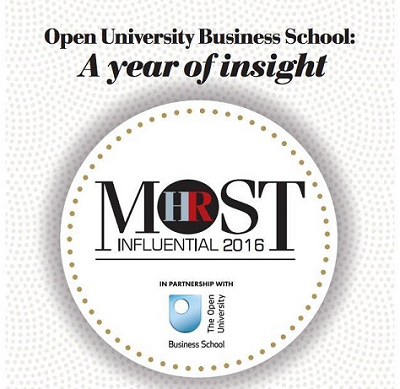People and Organisations

We are a diverse group of academics who research many aspects of work and organisations.
These can be broadly understood as centring on organisation studies and organisational psychology; and management and organisational learning, processes, change and innovation. Members of the department also have an interest in academic practices like research ethics and the politics of knowledge production.
Research into Employment and Equitable Futures
We seek to explore and shape the future direction of equitable futures, work and society with dedicated research into this area. In partnership with The People Space, this academic centre of excellence draws on the Department for People and Organisations' scholarly expertise on themes of identity, leadership, gender, bodies, ethics, power and learning to inform policy makers, organisational leaders, social practitioners and people from across contexts to work together to co-create innovative solutions for meeting these coming opportunities and challenges.
Gendered Organisational Practice
This research cluster takes feminist solidarity as a starting point to create a space where feminists of any gender can share insights and knowledge from academic study and practice. The cluster fosters continuous collaboration and exchange between practitioners and academics and provides a hub for those interested in developing equality through their research, but also for practitioners wanting to make their organisations more egalitarian and fairer places. Current areas of expertise include gendered working bodies, feminist organising and gender and sexuality.
Research interests
Organisation studies and organisational psychology
- Alternative organisations and organising
- Civil society organisations
- Corporate social responsibility
- Critical approaches to leadership and leadership dilemma
- Critical management studies
- Diversity in organisations
- Emotions in organisations
- Employee branding
- Financialisation and political and ethical responses
- Gender, sexuality, the body in organisations and how bodies are organised
- Human-animal relations in organisations
- Individual and group behaviour in organisational contexts
- The interplay between work and health
- Organisational democratic practice
- Organisational and individual identity, subjectivity, selfhood and the meaning of work
- Organisations, work and social inclusion
- Post-colonial relations in organisations
- Power, politics and organisations
- Professional occupations
- Precarious work
- The production, dissemination and contestation of meaning in organisations
- The psychology of financial behaviour
- Risk, uncertainty, and resilience
- Sociological accounts of work
- Transformations in technological and institutional conditions
Management and organisational learning, processes, change and innovation
- Change management
- Cross-cultural differences and self and group regulation in online learning
-
Collective organising and social learning processes
-
Decision-making under radical uncertainty
-
The development of business and management practices
-
Entrepreneurship
-
Formal and informal learning in organisations
-
Green HRM
-
Higher education management
-
Knowledge management
-
Management Information Systems
-
Managing inter-organisational relations in complex services
-
Management practices
-
Operations management
-
Serious games and the contribution of gamification to organisational learning and innovation
-
Strategic change
-
Supply chain management and behaviour
-
Supply chain analytics and modelling
-
Supply chain performance measurement systems
-
Sustainability and resilience in the supply chain
Academic practices
- Embodiment and affect in research
- The politics of academic knowledge production
- Research ethics
- Research methods
Academic Publications
Full details of our research publications can be found on Open Research Online and via our staff pages.
Teaching
Members of the Department teach across undergraduate, postgraduate and executive education modules in areas such as organisational behaviour, management of learning and change, professional development, human resource management, creativity, leadership, innovation, organisational culture and organisational development. We also run the CIPD accredited MSc in Human Resource Management.
Contact the Department for People and Organisations
For all department-related enquiries, please email us.
For all other enquiries, including student and alumni, please visit our contact us page.

Preparing for disruptions to work and society: Research into Employment, Empowerment and Futures
While there is much talk about the need to prepare for technological disruptions to work and society, there is little discussion about what values, structures and practices can be fostered to help people do so in a constructive and engaged way.
Benefits of networking: organisational innovation
Dr Peter Bloom from The Open University Business School talks about how networking can help organisational innovation, and how to go beyond just making personal connections.

Robots will revolutionise work, but can they also empower humans?
Many experts are predicting that we are rapidly headed toward a “fourth industrial revolution” where automation, robotics and computing take centre stage. Obviously, this shift could be revolutionary. However, the perhaps more important question is if it will also be empowering?
Empowerment and the future of work
Find out about the Research into Employment, Empowerment and Futures group (REEF) with these two introductory videos.
L&D professionals have an important contribution
Learning and development professionals have an important contribution to make in this new and difficult climate, says Eileen Arney.

Preparing for disruptions to work and society: Research into Employment, Empowerment and Futures
The Open University Business School has a new research group that is partnering with The People Space - the first of its kind to focus on the future of empowerment in the age of robotics.
The Ethics of Neoliberalism: The Business of Making Capitalism Moral
During this Breakfast Briefing on 23 May 2017, Dr Peter Bloom, Senior Lecturer in Organisational Studies at The Open University Business School, explained the ideas and theories in his new book "The Ethics of Neoliberalism".

Open University Business School: A year of insight
Download this free ebook featuring a year of insights from The Open University Business School (OUBS). This ebook collates a year of world-class thinking from OUBS, one of HR Magazine's HR Most Influential partners.

A better way of doing business: Why it’s time to revisit John Lewis
With poor governance hitting the headlines, it's worth revisiting the John Lewis Partnership for a case study of a different way of doing things.
Business Legitimacy: ‘Staying on the “right” side of public opinion… and how to avoid controversy’
This briefing explained what legitimacy is; why it is important to your business in the short and long-term; and how it can help your business adapt and survive in the future.
News

How to design menopause leave policies that really support women in the workplace
More than 15 million women are in employment in the UK right now, which means menopause is undoubtedly a workplace issue. In this article, Jo Brewis, Professor of People and Organisations writes about how to design menopause leave policies that really support women in the workplace.
- How to design menopause leave policies that really support women in the workplace
- Learning different ways to do HR in different organisations and countries
- The rise and fall of Topshop. OU/BBC series lifts the lid on iconic brand’s fall from grace
- Small bakery owners: we want your views!
- Self-employment: what is it, why do it and how has the pandemic affected it?
